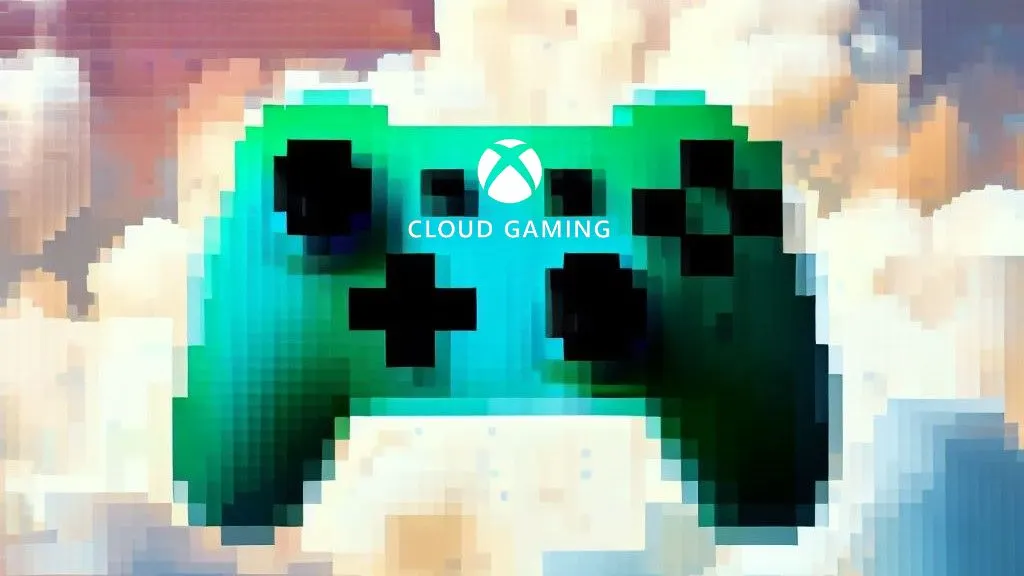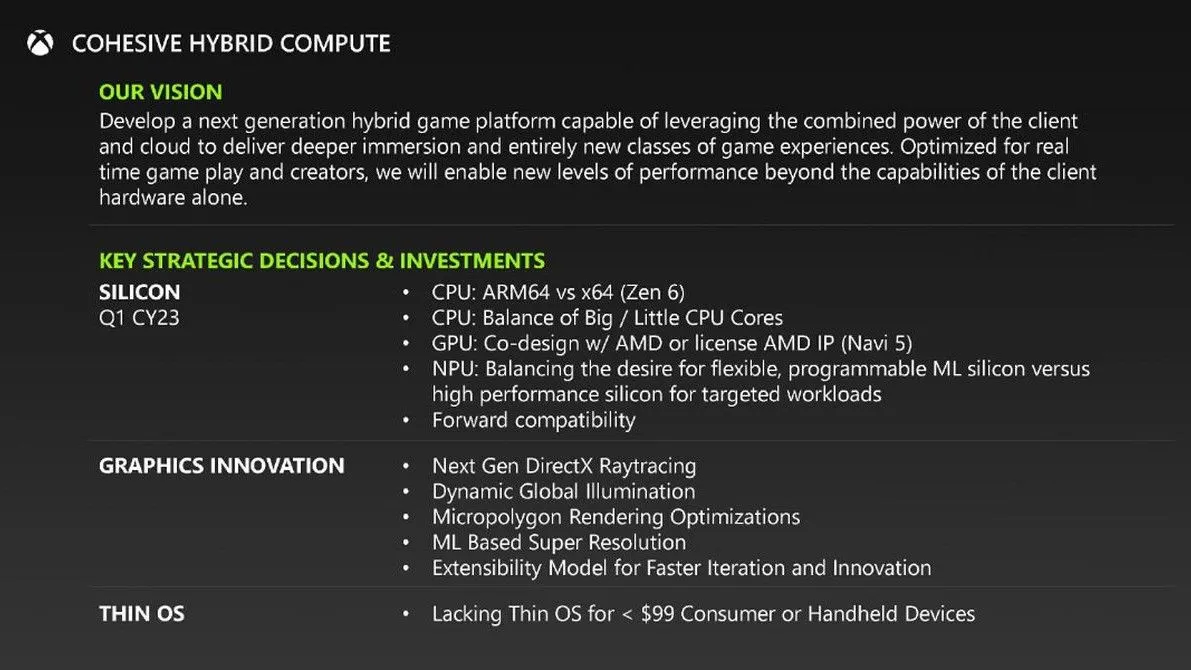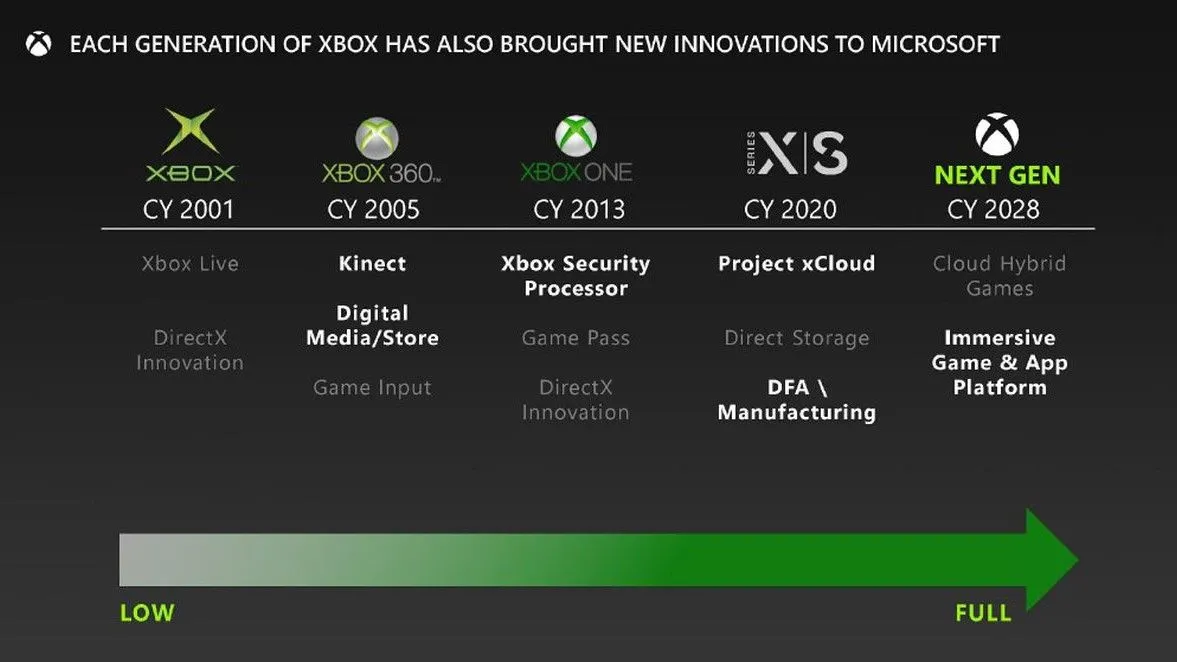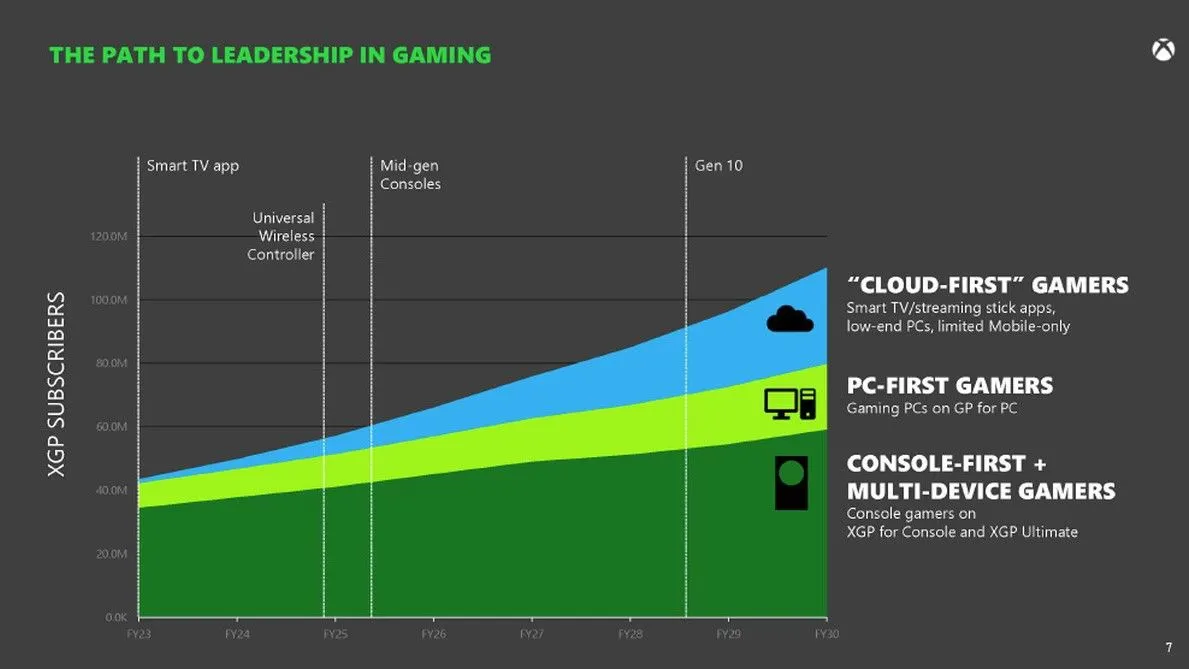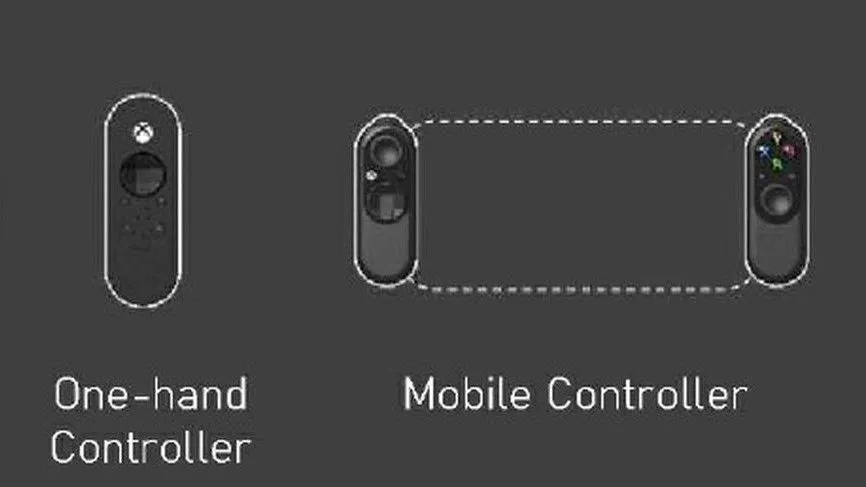What you need to know
•
Plans have leaked showing Microsoft's intentions to develop a next-generation hybrid game platform to leverage the combined power of a local console client and the cloud.
•
Microsoft envisioned a sub-$99 gadget, possibly a handheld that could run games using the X Cloud platform.
•
The project had a potential roadmap that would see hardware design begin in 2024, dev kits arrive in 2027 and the first hybrid cloud games being produced from 2024-2025.
(Image credit: Future/Bing Image Creator)
The FTC vs Microsoft case has the news cycle on fire right now with all the leaked plans coming out from both Microsoft and Bethesda, but a new discless console and a Fallout 3 Remaster are just a few of the spicy leaks we've had this morning. Documents have been published by The Verge that details Microsoft's plans well into 2028 for a full amalgamation of cloud gaming and physical consoles to create a perfect hybrid device and "cloud hybrid games".
"Optimized for real time game play and creators, we will enable new levels of performance beyond the capabilities of the client hardware alone."
The slide above is said to be leaked from a May 2022 document detailing Microsoft's vision and strategy for a 'Cohesive Hybrid Compute'. The consumer has a physical disc-less console that can run games at a higher performance with a combination of cloud technologies and powerful hardware. The price of this tech? Less than $99.
Microsoft shows this new console on a timeline with it's previous devices, and seems to pencil it in for a 2028 release.
An immersive Game & App Platform shown for 2028
Not having a powerful gaming PC myself, cloud services like Nvidia Geforce Now are my favorite place to play Baldur's Gate 3, could this Xbox Cloud hybrid plan be the next iteration of cloud gaming, and in a similar vein mean you needn't purchase a top of the range console to play the latest AAA games?
The idea, pitched by Microsoft, is to create a platform that seamlessly combines the power of the cloud and device to enable gaming anywhere. This may already be in the works at Xbox HQ, and the presentation shows it planned to partner with AMD for the required chips by early 2023 to secure the Navi 5 graphics technology. Other considerations were made like using Zen 6 CPU cores and Arm. Microsoft also anticipated using the power of AI to improve resolution, reduce latency and smooth frame rates.
Has development already begun?
(Image credit: FTC vs Microsoft documents leaked by The Verge)
The documents show a possible timeline for the technology that would have started hardware design in 2024, sent out the first dev kits in 2027, and created the first hybrid cloud games from 2024 to 2026.
But before that, another slide says, the company had to make some important choices on that chip, agree on building a slim operating system to run the local parts of those cloud games, decide which teams would be in charge, and design which hardware it would pair with it. It’s just as likely none of that happened, but we've reported before that Microsoft has sacrificed physical Xbox Series X sales to build Xbox Cloud Gaming servers, so it's not outside the realms of possibility.
(Image credit: FTC vs Microsoft documents leaked by The Verge)
The above chart breaks down Xbox Game Pass subscribers and shows how important Microsoft saw "cloud-first" gaming and users, who currently access their games through Smart TVs and mobile devices. This number may have spiked significantly since the release of Starfield, as more users than ever are facing queues when trying to use the service.
A cloud hybrid controller?
Further documents in the roadmap to 2030, focus on a 'hero' controller which will be the "only thing you need to play on every device". The rough-quality pictures of a mobile controller resemble the Backbone or Razer Kishi V2, and a one-hand controller is not unlike a Nintendo joy-con.
Controllers will have "direct to cloud connectivity"
In addition to the above, the leaked controller code-named 'Sebile' will have "Direct-to-Cloud" connectivity as well as Xbox Wireless and Bluetooth capability like existing controllers.
The race to cloud gaming supremacy?
Whether or not these leaked plans come to fruition, it's clear the death of Google Stadia hasn't put Microsoft, and indeed Sony, off the idea of cloud gaming. Whilst Microsoft undoubtedly had a head start, recently Sony has overtaken Xbox in some of the promised capabilities of its cloud gaming service.
However, not everyone is happy with the cloud gaming ambitions of these companies. The UK’s Competition and Markets Authority (CMA) recently blocked Microsoft’s acquisition of Activision Blizzard, one of the largest video game publishers in the world, citing concerns that it could harm competition in the emerging cloud gaming sector. While revised proposals have been submitted to the CMA, the outcome of this case could have significant implications for the future of cloud gaming, as well as for the video game industry as a whole.
As more players switch to streaming games over the internet, rather than downloading them to their devices, cloud gaming could become the next battleground for tech giants and game makers alike, and if these plans for a hybrid service become a reality, could Microsoft find themselves a few steps ahead in the race?
